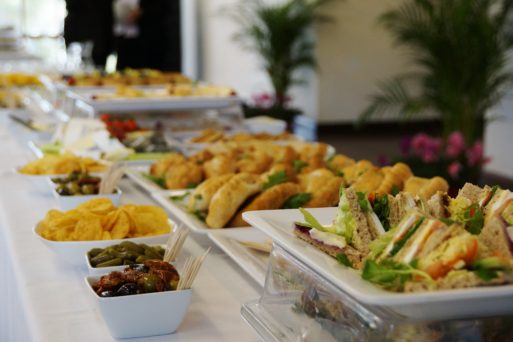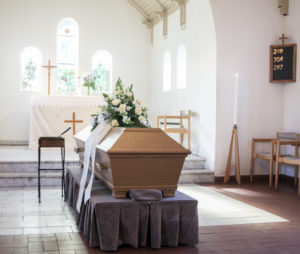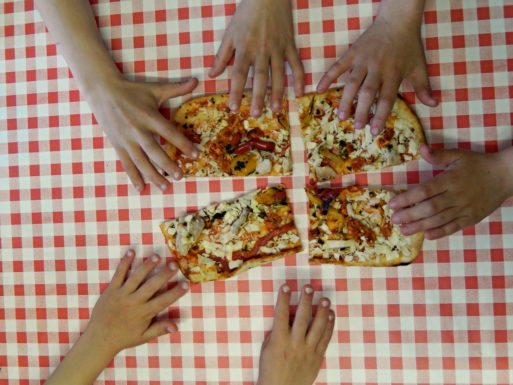
Credit: Wikimedia.org
For decades, it was illegal for funeral homes in most states to serve food of any kind on the property, even if families requested this service. At the time, lawmakers were concerned about the spread of food-borne illness, believing that bodies carry diseases that could infect funeral guests. But in recent years, scientists and healthcare professionals have determined that food and drinks served in funeral homes are perfectly safe.
Now, lawmakers are listening to this new research. Over the summer, New York’s Gov. Andrew Cuomo approved a measure that allowed funeral directors to serve their guests food and beverages during memorial ceremonies. As of Jan. 17, 2017, funeral homes in New York are officially allowed to serve food to grieving families and hire caterers for memorial events.
New York isn’t alone in this decision. Last year, New Jersey proposed a similar measure asking lawmakers to lift the ban on food and drinks served in funeral homes. So far, support for the measure is strong among funeral directors, families and even healthcare professionals. Supporters say that lifting the ban will allow families to celebrate their own cultures. It will also allow them to spend more time saying goodbye to their loved ones and gain comfort from their favorite foods.
Critics of the new measures claim that the benefits don’t outweigh the risks. Historically, people in the United States have viewed dead bodies as being unclean. In U.S. culture, few people feel comfortable touching a dead body, even the body of a loved one. Many people avoid eating or drinking in the same room as the dead.

Credit: Wikimedia.org
But healthcare professionals say that these fears are largely unfounded. While some bodies can carry disease, it is extremely rare. What’s more, many of the diseases that do occur are airborne, rather than food-borne. Funeral homes embalm or cremate individuals quickly, long before decomposition takes place. Therefore, the risk of disease is nearly non-existent for funeral guests.
The new laws specify that funeral directors cannot serve food and drinks in the same areas used for embalming or cremation. Food and drinks served in funeral homes also must be kept in a separate room from any chemicals. Most funeral directors serve food in the greeting area or a designated memorial room. Despite these precautions, critics are still wary of the new laws.
Some funeral directors who oppose the new laws say that it will distract them from their work. They claim they will need to spend more time finding caterers for memorial events, and will have less time to dedicate to other details of the service. Louis Stellato Jr., who owns multiple funeral homes in New Jersey, told the Huron Daily Tribune, “I have real difficulty seeing the correlation between easing grief and a cup of Colombia roast.”
Critics succeeded in reinstating an almost identical law in Pennsylvania a few years ago. In 2012, a federal judge found that food bans in funeral homes were unconstitutional. However, in 2014, the courts overturned the ruling, and lawmakers reinstated the bans. Many funeral directors condemned the decision, saying that it limits families’ memorial rights.
Director Chad Snyder told Trib Live, “Food and funerals go hand-in-hand.” When a journalist asked him whether there was any risk of disease, he said, “Every hospital has a cafeteria, don’t they?” Snyder added that as long as the funeral director or caterer follows basic food safety precautions, there is no risk to guests.

Credit: Flickr.com
In the end, bans on food and drinks served in funeral homes can make it difficult for families to get a full memorial experience. Food has a rich history of helping people heal during times of grief. Some funeral directors say that having food available helps families stay in the memorial room for a few hours longer. Without it, many families need to leave to get a bite to eat. Food can also be an important connection to the person who died. Eating a loved one’s favorite food or drinking their preferred brand of coffee often brings up fond memories for families to share.
As the American public becomes more comfortable with the idea of eating food in a funeral home, we will likely see more bans lifted in other states.

 New Laws Loosen Restrictions on Food and Drinks Served in Funeral Homes
New Laws Loosen Restrictions on Food and Drinks Served in Funeral Homes



 “Help Me, Helen”
“Help Me, Helen”















